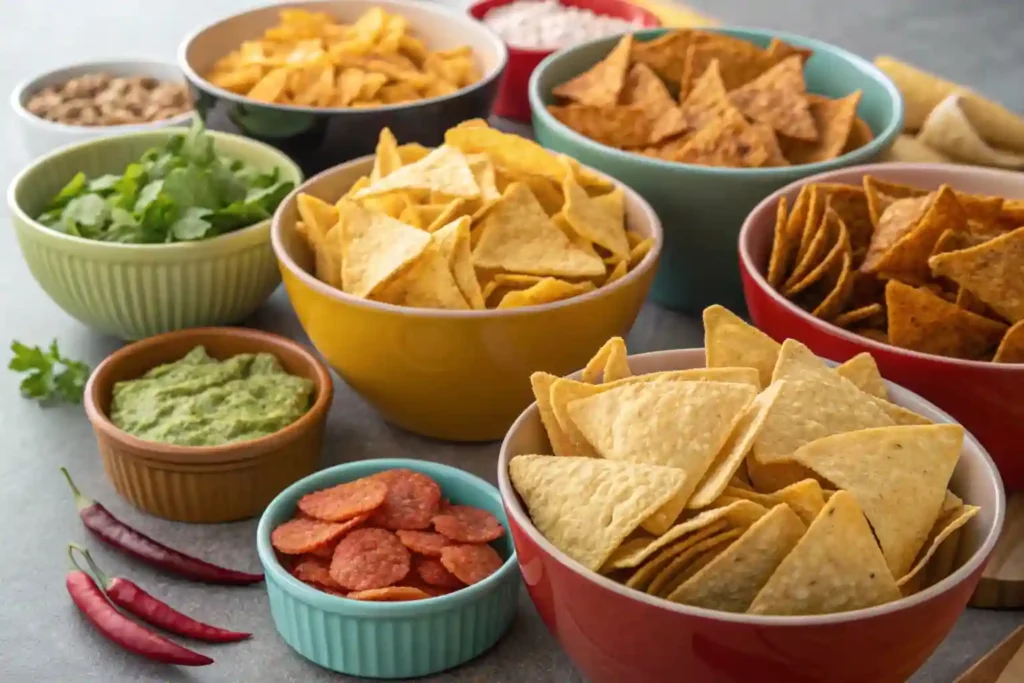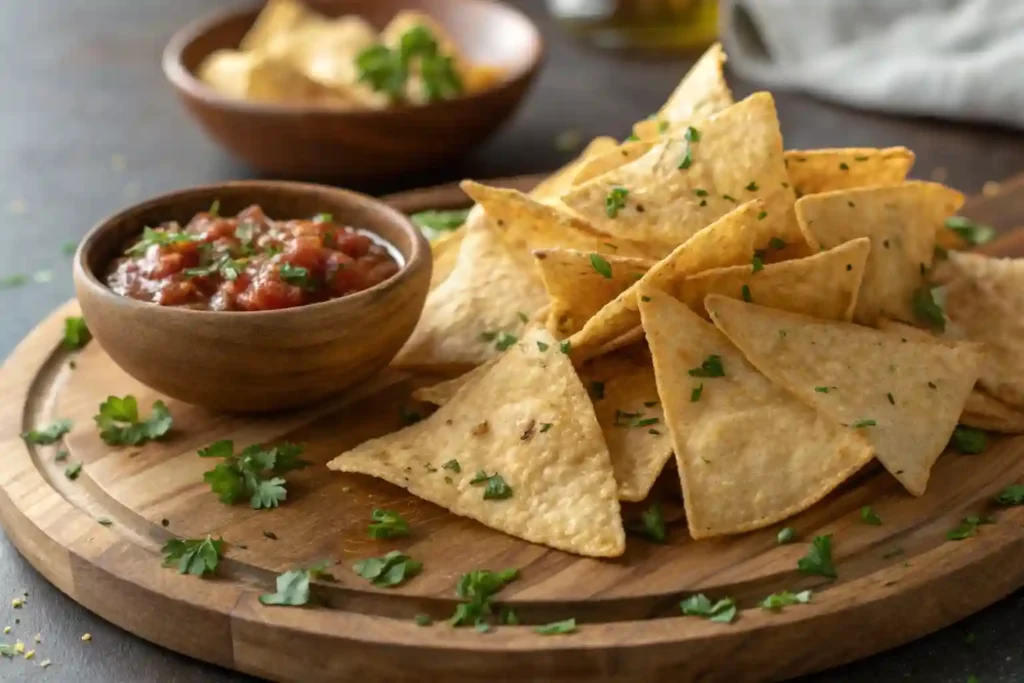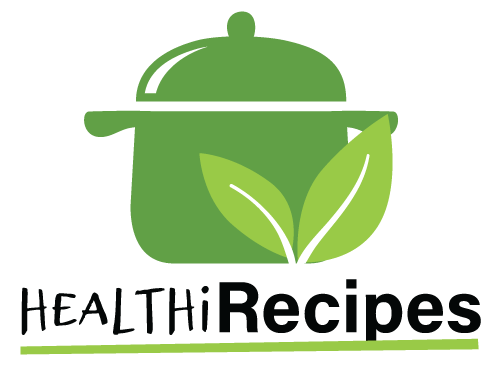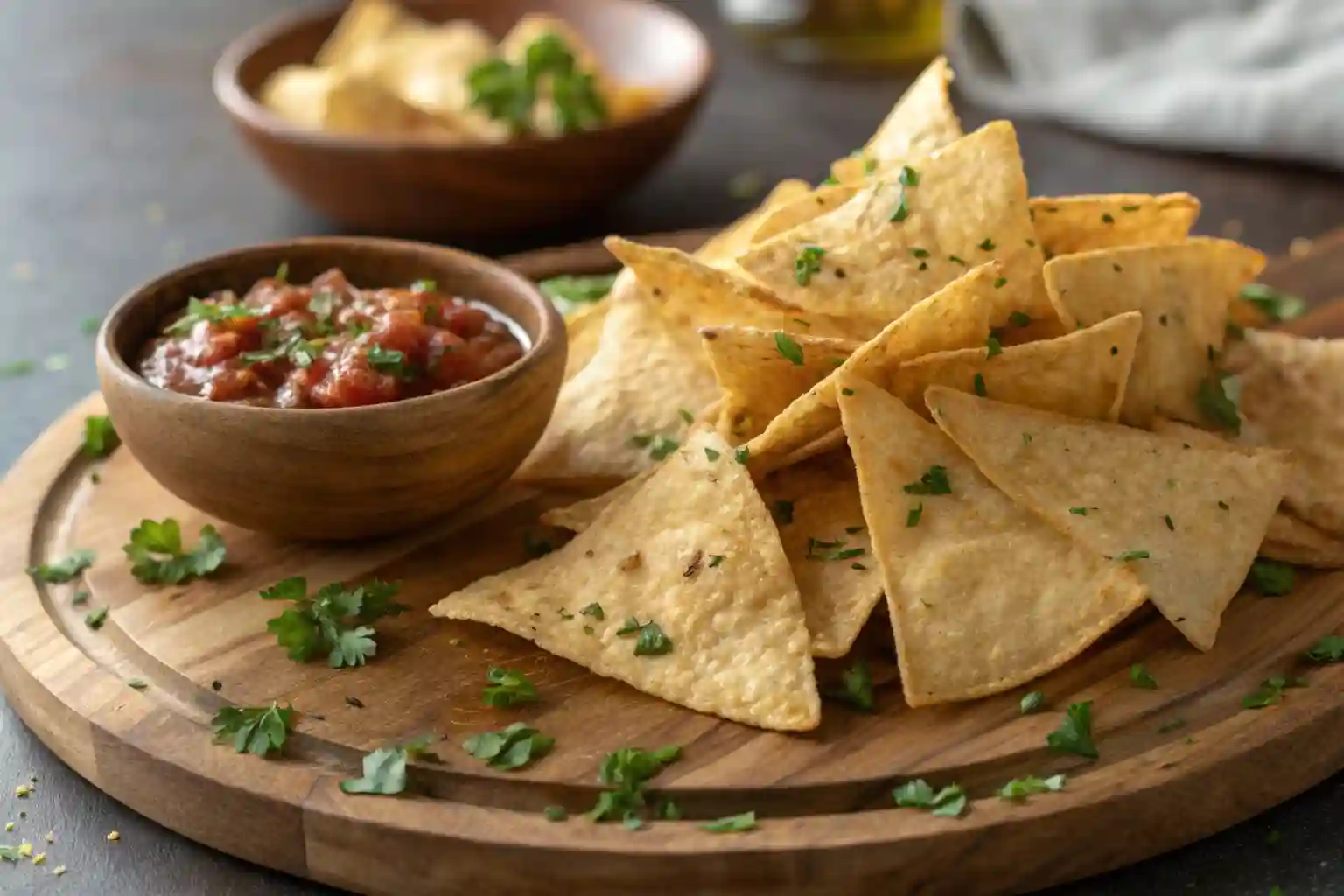Table of Contents
Introduction
In a world where snacking often leads to unhealthy choices, healthy tortilla chips are a tasty and nutritious option. Whether you enjoy them with salsa, guacamole, or by themselves, tortilla chips can be a satisfying snack that won’t hurt your health goals. This article will look at the best options available, how to make your own, and the health benefits of adding tortilla chips to your diet.
Why Choose Healthy Tortilla Chips?
- Nutritional Value: Many healthy tortilla chips are made from whole grains, providing essential nutrients and fiber.
- Versatility: They can be paired with a variety of dips and toppings, making them a versatile snack.
- Guilt-Free Indulgence: With the right choices, you can enjoy the crunch and flavor of tortilla chips without the guilt.
Let’s dive into the details and discover what makes tortilla chips a healthy choice!
1. What is the Healthiest Tortilla Chip?

When it comes to choosing the healthiest tortilla chip, several factors come into play. Here’s what you need to know:
1.1 Nutritional Comparison of Popular Brands
Not all tortilla chips are created equal. Here’s a quick comparison of some popular brands:
- Brand A:
- Calories: 140 per serving
- Fat: 7g
- Fiber: 2g
- Brand B:
- Calories: 120 per serving
- Fat: 5g
- Fiber: 3g
- Brand C:
- Calories: 100 per serving
- Fat: 4g
- Fiber: 4g
When selecting a brand, look for options that are lower in calories and fat while higher in fiber. This will help you make a more informed choice.
1.2 Whole Grain vs. Traditional Corn Chips
Choosing between whole grain and traditional corn chips can significantly impact your health:
- Whole Grain Chips:
- Higher in fiber, which aids digestion.
- Often contain more vitamins and minerals.
- Traditional Corn Chips:
- Typically lower in fiber.
- May contain added preservatives and unhealthy fats.
Opting for whole grain tortilla chips can provide a more nutritious snacking experience.
1.3 Low-Calorie and Baked Options
If you’re watching your calorie intake, consider these options:
- Baked Tortilla Chips:
- Generally lower in calories and fat compared to fried chips.
- Retain a satisfying crunch without the extra oil.
- Low-Calorie Brands:
- Some brands offer chips with as few as 100 calories per serving.
These options allow you to enjoy your favorite snack without derailing your diet.
2. Can Tortilla Chips Be Healthy?
Absolutely! Tortilla chips can be a healthy snack if you choose wisely. Here’s how:
2.1 Ingredients to Avoid
When shopping for tortilla chips, be mindful of the ingredients:
- Artificial Additives: Look for chips without artificial flavors or preservatives.
- High Sodium Content: Excessive sodium can lead to health issues. Aim for chips with less than 200mg of sodium per serving.
- Unhealthy Fats: Avoid chips made with hydrogenated oils or trans fats.
Reading labels is crucial to ensure you’re making a healthy choice.
2.2 Health Benefits of Tortilla Chips
ortilla chips can provide several health benefits:
Fiber Content: Many tortilla chips, especially whole grain types, are high in fiber, which helps with digestion.
Nutrient-Rich: Corn is a good source of vitamins A, B, and C, along with important minerals like magnesium and potassium.
Energy Boost: The carbohydrates in tortilla chips give you a quick energy boost, making them a great snack before or after exercise.
2.3 Portion Control and Moderation
Even healthy snacks can lead to overeating. Here are some tips for enjoying tortilla chips in moderation:
Mindful Eating: Be aware of portion sizes. A serving is usually about 1 ounce (around 10-15 chips).
Pair with Healthy Dips: Choose nutritious dips like guacamole or salsa to add to the health benefits.
Snack Mindfully: Try not to eat straight from the bag to help manage portions.
By practicing portion control, you can enjoy tortilla chips without overdoing it.a chips without compromising your health.
3. Is It Healthier to Make My Own Tortilla Chips?

Making your own tortilla chips can be a rewarding and healthier alternative to store-bought options. Here’s why you might consider this approach:
3.1 Benefits of Homemade Chips
Firstly, creating your own tortilla chips offers several advantages:
For one, you have control over the ingredients, allowing you to choose high-quality options and avoid unhealthy additives and preservatives.
Additionally, customization is key; you can tailor the flavor and seasoning to your preferences. For instance, if you want a spicy kick, simply add chili powder or cayenne pepper!
Finally, you can opt for healthier cooking methods by baking your chips instead of frying them, which significantly reduces the fat content.
By making your own chips, you can ensure that they align with your health goals while still being delicious.
3.2 Simple Recipes for Homemade Tortilla Chips
Here’s a quick and easy recipe to get you started on making your own tortilla chips:
Baked Tortilla Chips Recipe
Ingredients:
- 6 corn tortillas
- 2 tablespoons olive oil
- 1 teaspoon sea salt
- Optional: spices (e.g., paprika, garlic powder, or cumin)
Instructions:
- Preheat the Oven: Preheat your oven to 350°F (175°C).
- Prepare the Tortillas: Cut each tortilla into 6 wedges.
- Coat with Oil: In a large bowl, toss the tortilla wedges with olive oil and your choice of spices until evenly coated.
- Arrange on a Baking Sheet: Spread the wedges in a single layer on a baking sheet.
- Bake: Bake for 10-15 minutes, or until golden brown and crispy. Keep an eye on them to prevent burning.
- Cool and Serve: Let them cool before serving with your favorite dip.
This simple recipe allows you to enjoy fresh, crispy tortilla chips without the extra calories from frying.
3.3 Cost-Effectiveness of Making Your Own
Making your own tortilla chips can also be more economical:
- Bulk Ingredients: Purchasing tortillas in bulk can save you money in the long run.
- Less Waste: You can make as many chips as you need, reducing food waste.
- Healthier Options: By controlling the ingredients, you can create healthier snacks that fit your budget.
Overall, making your own tortilla chips can be a cost-effective and healthier choice.
4. Is Tortilla a Healthy Option?
Tortillas can be a nutritious addition to your diet, but it’s essential to understand their nutritional profile.
4.1 Nutritional Profile of Tortillas
Tortillas come in various types, each with its own nutritional benefits:
- Corn Tortillas:
- Lower in calories compared to flour tortillas.
- Naturally gluten-free, making them suitable for those with gluten sensitivities.
- Rich in fiber and essential nutrients.
- Flour Tortillas:
- Higher in calories and carbohydrates.
- Often contain added fats, which can increase calorie content.
- Can be made with whole wheat for added fiber.
When choosing tortillas, consider your dietary needs and preferences.
4.2 Types of Tortillas
Here’s a breakdown of different types of tortillas and their health benefits:
- Whole Wheat Tortillas:
- Higher in fiber and nutrients compared to white flour tortillas.
- A good option for those looking to increase whole grain intake.
- Spinach or Tomato Tortillas:
- Often made with added vegetables, providing extra vitamins.
- Can be a fun way to add color and flavor to your meals.
- Alternative Flour Tortillas:
- Made from almond, coconut, or chickpea flour for those following specific diets (e.g., keto, paleo).
- Lower in carbohydrates and higher in protein.
Choosing the right type of tortilla can enhance the nutritional value of your meals.
4.3 Incorporating Tortillas into a Balanced Diet
Tortillas can be a versatile ingredient in a balanced diet. For example, here are some ideas:
Firstly, wraps and burritos can be filled with lean proteins, vegetables, and healthy fats for a nutritious meal.
Secondly, tacos are a great option; use corn tortillas for a lighter choice, filled with fresh ingredients.
Lastly, quesadillas can be made with whole grain tortillas, and you can load them with veggies and low-fat cheese.
By incorporating tortillas into your meals mindfully, you can enjoy their benefits while maintaining a balanced diet.
5. Are Tortillas OK to Eat on a Diet?
When it comes to dieting, many people wonder if tortillas can fit into their meal plans. The answer is yes, but with some considerations.
5.1 Caloric Content and Diet Compatibility
Tortillas can be a part of various diet plans, but it’s essential to be mindful of their caloric content:
- Caloric Range:
- Corn tortillas typically contain about 50-100 calories each, depending on size and brand.
- Flour tortillas can range from 100-300 calories, especially if they are larger or made with added fats.
- Diet Plans:
- Low-Carb Diets: Opt for smaller corn tortillas or alternative flour tortillas made from almond or coconut flour.
- Mediterranean Diet: Incorporate whole grain tortillas filled with lean proteins and plenty of vegetables.
Understanding the caloric content helps you make informed choices that align with your dietary goals.
5.2 Healthy Toppings and Fillings
The healthiness of your tortilla meal often depends on what you put inside or on top of it. Here are some healthy topping ideas:
- Lean Proteins:
- Grilled chicken, turkey, or beans provide protein without excess fat.
- Fresh Vegetables:
- Load up on spinach, bell peppers, tomatoes, and onions for added nutrients and fiber.
- Healthy Fats:
- Avocado or a sprinkle of cheese can add flavor and healthy fats, but be mindful of portion sizes.
- Nutritious Dips:
- Pair your tortilla chips with salsa, guacamole, or hummus for a balanced snack.
By choosing healthy toppings, you can create a satisfying meal that supports your dietary goals.
5.3 Mindful Eating Practices
To enjoy tortillas while maintaining a healthy diet, consider these mindful eating practices:
- Portion Control:
- Measure out servings instead of eating directly from the bag to avoid overeating.
- Balanced Meals:
- Ensure your meals include a balance of protein, healthy fats, and carbohydrates.
- Savor Each Bite:
- Take your time to enjoy your food, which can help you feel more satisfied and prevent overeating.
Practicing mindful eating can enhance your enjoyment of tortillas while keeping your diet on track.
6. Are Tortillas Healthier Than Potato Chips?
When comparing tortillas to potato chips, many health-conscious individuals want to know which is the better option. Here’s a breakdown:
6.1 Nutritional Comparison
Here’s a side-by-side analysis of the nutritional content of tortilla chips and potato chips:
| Nutrient | Tortilla Chips (1 oz) | Potato Chips (1 oz) |
|---|---|---|
| Calories | 120 | 150 |
| Total Fat | 5g | 10g |
| Saturated Fat | 0.5g | 1g |
| Fiber | 3g | 1g |
| Sodium | 200mg | 300mg |
As you can see, tortilla chips generally have fewer calories, less fat, and more fiber than potato chips, making them a healthier choice.
6.2 Healthier Snacking Alternatives
If you’re looking for healthier snacking options, consider these alternatives:
- Vegetable Chips:
- Made from kale, beets, or sweet potatoes, these can offer more nutrients and fiber.
- Popcorn:
- Air-popped popcorn is a low-calorie snack that can be seasoned to your liking.
- Nuts and Seeds:
- While higher in calories, they provide healthy fats and protein, making them a satisfying snack.
6.3 Personal Preferences and Dietary Needs
Ultimately, the choice between tortillas and potato chips may come down to personal preference and dietary needs:
- Dietary Restrictions:
- For those with gluten sensitivities, corn tortillas are a safe option, while potato chips may contain gluten in some brands.
- Flavor Preferences:
- If you prefer the taste of one over the other, that can influence your choice.
- Nutritional Goals:
- Consider your overall dietary goals when making snack choices.
By understanding the nutritional differences and considering your personal preferences, you can make informed decisions about your snacks.
Conclusion
In summary, healthy tortilla chips can be a delicious and nutritious addition to your diet when chosen wisely. Whether you opt for store-bought varieties or decide to make your own, understanding the nutritional content and ingredients is key to making healthier choices.
By exploring the different types of tortillas and their health benefits, you can effectively incorporate them into your meals in a way that aligns with your health goals. Additionally, remember to practice portion control and, furthermore, pair your chips with nutritious dips to maximize their health benefits.
For those looking to expand their culinary horizons, you might find inspiration in articles like Is Indian Food Healthy?, which explores nutritious options in Indian cuisine. Additionally, if you’re interested in convenient meal solutions, check out Healthy Choice Frozen Meals for ideas that complement your healthy snacking habits. And for a fun meal idea, try the Taco Bowl Recipe, where you can incorporate your favorite tortilla chips as a delicious base.
FAQs
What is the healthiest tortilla chip?
The healthiest tortilla chip is typically made from whole grains, low in sodium, and free from artificial additives. Look for options with high fiber content and minimal unhealthy fats.
Can tortilla chips be healthy?
Yes, tortilla chips can be healthy if you choose brands that prioritize whole ingredients and lower calories. Homemade options are also a great way to control what goes into your chips.
Is it healthier to make my own tortilla chips?
Making your own tortilla chips allows you to control the ingredients and cooking methods, making it a healthier option compared to many store-bought varieties.
Is tortilla a healthy option?
Tortillas can be healthy, especially whole grain and corn varieties. They provide essential nutrients and can be part of a balanced diet.
Are tortillas OK to eat on a diet?
Yes, tortillas can be included in a diet, especially when choosing whole grain or low-calorie options. Just be mindful of portion sizes and toppings.
Are tortillas healthier than potato chips?
Generally, tortillas, especially whole grain or baked varieties, are healthier than potato chips due to lower calories and higher fiber content.

